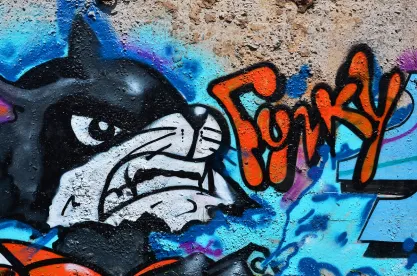SCOTUS Sets Precedent on the Expropriation Exception to the Foreign Sovereign Immunities Act, Ruling that Germany Cannot Be Sued in the United States for Taking Property from Its Own Citizens
The U.S. Supreme Court unanimously ruled against the Jewish heirs of German art dealers, who in 1935 sold gilded German reliquaries dating back to the 11th to 15th centuries (known as the Guelph Treasure) to the Nazi-controlled Prussian government. The heirs sued Germany in the United States, arguing that the sale was a “genocidal taking” under duress and seeking restitution of the reliquaries. Germany unsuccessfully argued before the district court and a federal appeals court that this case should be dismissed on the grounds that U.S. courts cannot hear lawsuits against foreign governments and their agencies. The high court reversed the courts below, finding that the rare expropriation exception to the Foreign Sovereign Immunities Act, which allows suits to be brought for property taken “in violation of international law” through an agency or instrumentality that is engaged in commercial activity in the United States (28 U.S.C. § 1605(a)(3)), only applies to non-citizens. The Supreme Court held that the Act does not offer an exception for claims that property was taken from that country’s own citizens as part of a human rights violation. In so ruling, the Supreme Court cited its 2004 decision in the case of Maria Altmann, who was held to have the right to sue Austria for the taking of Gustav Klimt’s paintings from her uncle, who was a Czech national residing in Vienna. The saga of the Guelph Treasure does not end here, however: the case was remanded back to the district court to consider an alternative argument that the dealers were no longer German nationals due to the loss of their rights as citizen under the Holocaust.
-
The Art Newspaper: US Supreme Court sides with Germany in Guelph Treasure case
The remainder of the news summaries are separated by region for your browsing convenience.
UNITED STATES
New Anti–Money Laundering Law Targets Antiquities Dealers: Similar Rules Likely Will Be Extended to the Art Market
The recently enacted National Defense Authorization Act for Fiscal Year 2021 includes a new law requiring antiquities dealers to comply with the requirements of the Bank Secrecy Act. This law mandates that the dealers adopt anti‒money laundering programs, including identifying the “ultimate beneficial owners” of companies participating in transactions. Regulations on the specific policies that the dealers must implement are being drafted by the U.S. Department of the Treasury, which also will undertake a study this year on whether there is evidence of money laundering in the broader art market. The outcome of this study is noted by commentators to be a foregone conclusion, i.e. that the broader art market will likely be regulated in the future as well, especially in light of last year’s U.S. Senate report on the international art market. The Art Dealers Association of America (ADAA) is in talks with congressional committees in an effort to ease the burden on those in the trade, small businesses especially. As anti‒money laundering programs are typically costly to implement, art businesses will need to educate themselves on the coming regulations and available ways to lessen the costs of compliance.
Zoning Appeals Board at a New York Village Defines Art
The zoning appeals board of the village of Kinderhook, New York, unanimously recognized Nick Cave’s and Bob Faust’s text work Truth Be Told as art. The 21-foot high by 160-foot long installation was placed on the façade of Jack Shainman Gallery’s upstate outpost The School in late October 2020, and was meant to inspire dialogue about racial justice. The installation prompted criticism, including from a local mayor, who argued that the text constituted an illegal sign. The zoning board’s decision means that the artwork could remain on The School’s façade. The artwork will be on view at the Brooklyn Museum in Spring 2021.
-
The Art Newspaper: In unanimous decision, Kinderhook zoning board recognises Nick Cave’s Truth Be Told is art not a sign
-
Artnet News: Artist Nick Cave’s Controversial Upstate New York Artwork Has Found a New Home at the Brooklyn Museum
Village of Southampton, New York, Requires Landlords to Fill Empty Storefronts with Art
In 2020, the Storefront Art Project initiative spearheaded by Southampton mayor Jesse Warren was signed into the village code of Southampton, New York. Under the new law, landlords of storefront spaces that have been empty for more than a month must make the spaces available to local artists or face fines. The landlords are not required to pay the artists; however, the initiative is meant to provide free exposure to the artists.
-
Artnet News: Landlords in a Tony Hamptons Town Must Fill Their Empty Storefronts With Works by Local Artists—Or Else Pay a Fine
EUROPE
Germany Proposes Changes to Foundation Law to Ease Restitution of Nazi-Looted Property from Private Foundations
Following refusals by several private foundations to restitute property lost due to Nazi persecution, claiming that their state’s rules bar them from divesting assets, German Chancellor’s cabinet signed off on a clarification to the foundation law to create uniformity across Germany’s 16 states. The clarification, which is meant to ease the fulfillment of restitution obligations, still must be approved by parliament.
Europe’s Court of Human Rights Delivers an Important Victory to Artists in Turkey While the Struggle for Artistic Freedoms in Turkey Continues
The European Court of Human Rights has ruled that Turkey violated the freedom of expression rights of British artist Michael Dickinson by convicting him in 2010 of insulting president Recep Tayyip Erdoğan through his artwork. Turkey was ordered to pay €2,000 (around $2,400) to the estate of the artist, who passed away last year. Turkey has been criticized for cracking down on artistic freedoms in recent years, including several imprisonments of artist Zehra Dogan and last week’s arrest of five students over an LGBTQ-themed art work displayed at a protest exhibition at Istanbul’s Boğaziçi University.
-
Artnet News: Turkey Violated an Artist’s Freedoms by Fining Him for Insulting the President, Europe’s Human Rights Court Has Ruled
-
The Art Newspaper: Five Turkish students arrested over LGBTQ-themed work
Swiss Prosecutors Are Closing Investigation into Art Dealer Yves Bouvier after Charges Brought Against Him by Russian Oligarch Dmitry Rybolovlev
The Geneva prosecutor’s office announced that it will end the criminal proceedings against art dealer Yves Bouvier after Dmitry Rybolovlev, his former client, brought criminal charges against him. This decision is another step toward victory for Bouvier, who has been fighting his former client’s charges of fraud, breach of trust and money laundering in different courts around the world for more than five years. A court in Monaco dismissed a similar criminal case against Bouvier last year. Legal proceedings in the United States, the United Kingdom and France are ongoing.
ASIA
Armed Conflicts & Art: Artsakh Appeals to Russia for Help in Preserving Art Objects from the City of Shusha
After Azerbaijan’s army had taken Shusha, the second-largest city in the Nagorno-Karabakh enclave, in November 2020, the Republic of Artsakh (a/k/a Nagorno-Karabakh Republic) demanded that Azerbaijan return about 1,500 art objects captured from Shusha. Following Azerbaijan’s refusal, Artsakh is appealing for help to Russia, which reportedly agreed to help.



 />i
/>i
